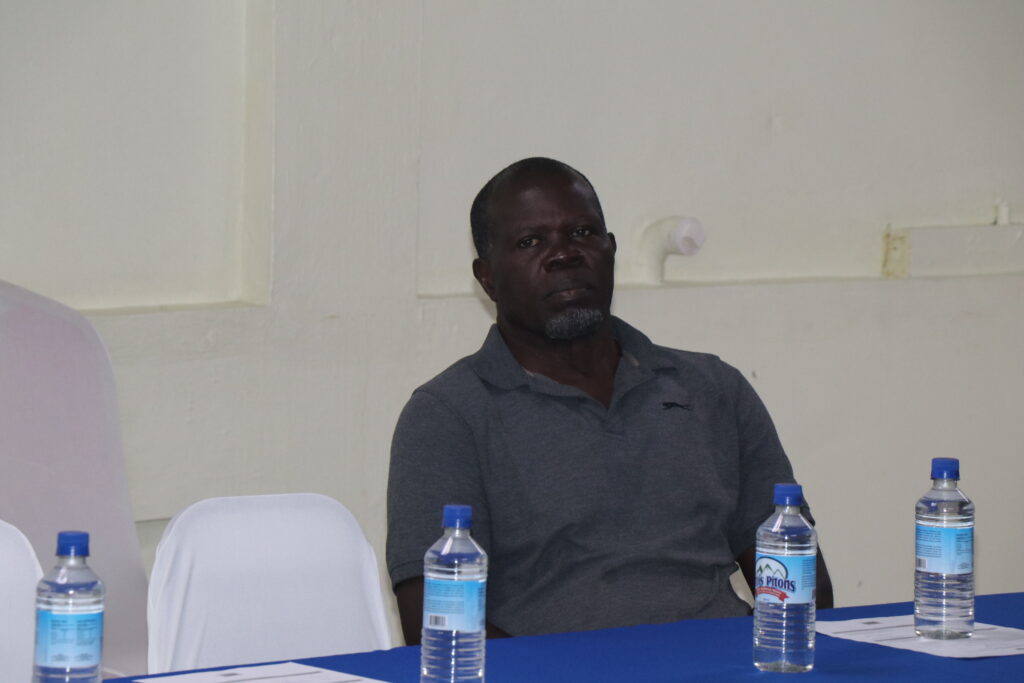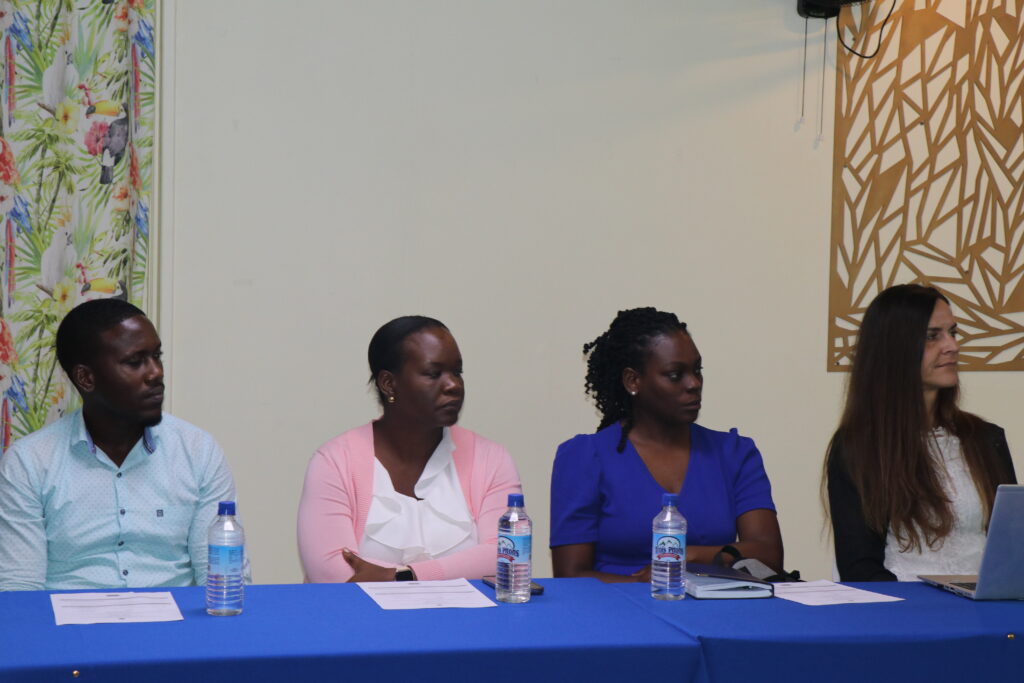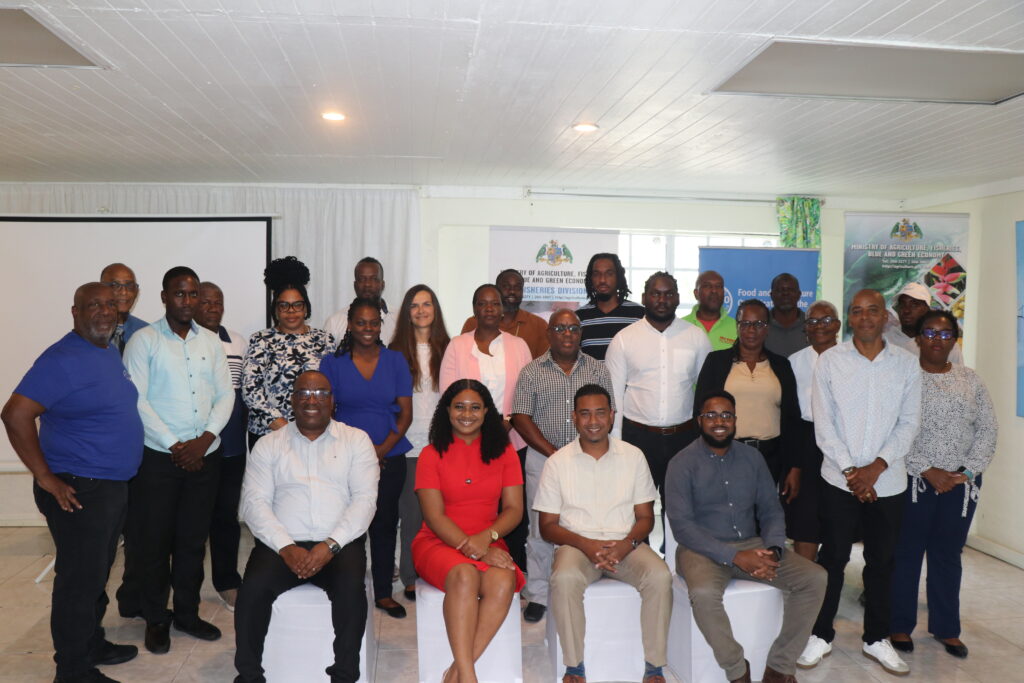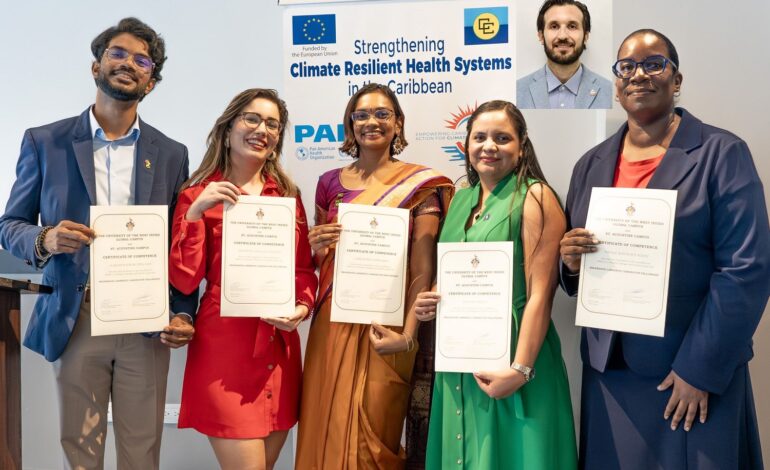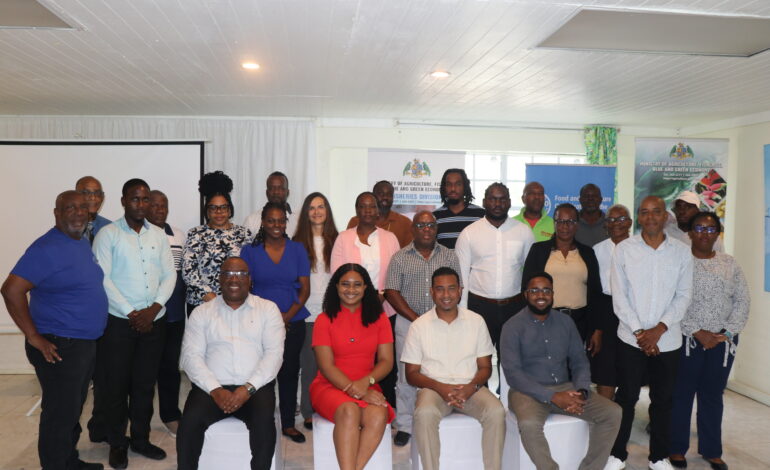
The Ministry of Agriculture, Fisheries, Blue and Green Economy (MOAFBGE), in collaboration with the Food and Agriculture Organization of the United Nations (FAO), successfully hosted a National Stakeholder Validation Workshop on Tuesday, May 14, 2025, at the Prevost Cinemall Conference Facility, Roseau.
The workshop marked a key milestone in the finalization of Dominica’s first Ecosystem Approach to Fisheries Management (EAFM) Plan, titled “Securing Resilient Coastal Futures through the Ecosystem Approach to Fisheries Management.” The Plan is designed to promote sustainable fisheries, protect marine ecosystems, and strengthen the resilience of coastal communities.
The opening session was chaired by Mr. Derrick Theophile, Acting Chief Fisheries Officer, who welcomed participants and emphasized the importance of inclusive dialogue in shaping national marine policy.
Delivering remarks on behalf of the Government of Dominica, Permanent Secretary Mr. Ryan Anselm highlighted the significance of the EAFM Plan in achieving sustainable development outcomes:
“This plan represents a turning point in how we view and manage our marine ecosystems. It not only supports sustainable fishing, but also reinforces food security, coastal protection, and blue economic development,” Mr. Anselm stated.
Representing the FAO Subregional Office for the Caribbean, Mrs. Shan Oliver-Julien, FAO Project Coordinator, reaffirmed FAO’s commitment to supporting the fisheries sector in Dominica through technical assistance and regional capacity building.
“The FAO is proud to support Dominica in adopting this bold and necessary shift toward an ecosystem-based approach. This model is vital for ensuring sustainability, equity, and resilience across the region,” said Mrs. Oliver-Julien.
The feature address was delivered by the Honourable Julian Defoe, Minister of State in the Ministry with responsibility for Fisheries and the Blue Economy.
“The EAFM Plan places people and ecosystems at the center of policy,” Minister Defoe stated. “It reflects our government’s commitment to sustainable livelihoods and the protection of our marine resources for current and future generations.”
The workshop featured a technical presentation by Dr. Camille David, a marine expert and session facilitator, who introduced the EAFM methodology, outlined workshop objectives, and presented proposed management strategies for four priority Fisheries Management Units (FMUs): Soufriere-Scotts Head, Mero, Portsmouth, and the Sperm Whale Reserve. These FMUs reflect a diversity of ecological and socio-economic characteristics. Using the Soufriere-Scotts Head area as a model, participants including fishers, conservationists, tourism operators, and local leaders provided feedback on draft management plans tailored to each area.
The EAFM Plan is expected to enhance the Fisheries Division’s ability to implement science-based policy and regulatory frameworks, while also contributing to national efforts in food security, biodiversity conservation, and climate adaptation.
The workshop concluded with a summary of next steps, including refinement of the draft plan and preparation for national endorsement. A phased implementation roadmap will follow.
The Ministry of Agriculture, Fisheries, Blue and Green Economy and the FAO extend sincere thanks to all stakeholders, partners, and community members who contributed to the successful validation of this important national plan. The final version is expected to be adopted in the coming months.

